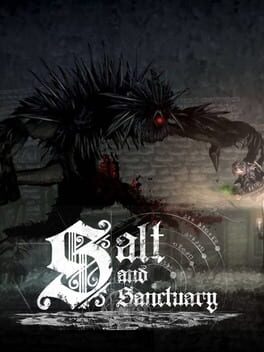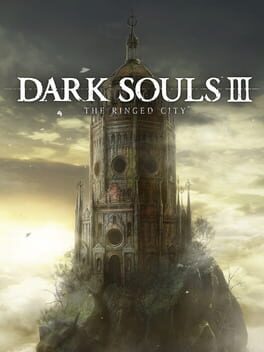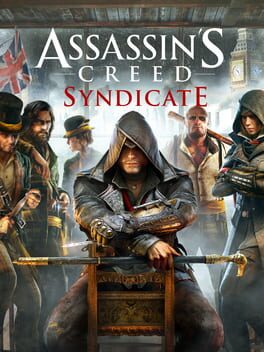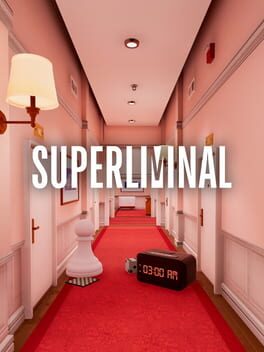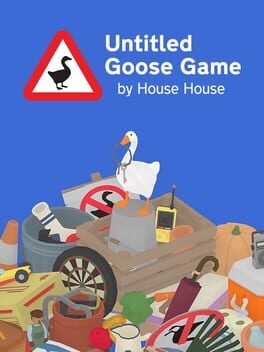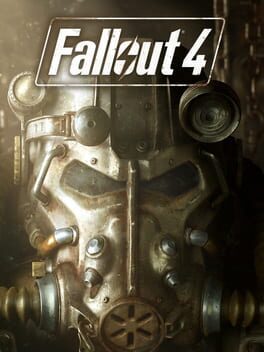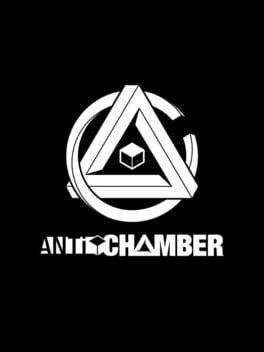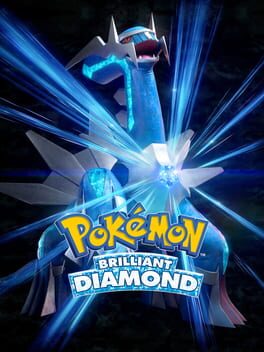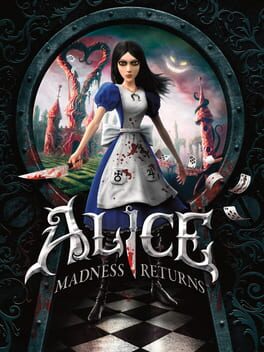tinbitch
2016
I did desperately want to play this all the way through, as I loved the vibe of it, designs, atmosphere and music were amazing, but sadly I struggled too much with initial difficulty the first time I played it and then again with the janky dodge/hitboxes after getting into Souls games. That's certainly more my fault than the games', though, but I do wish the combat was a bit smoother.
2016
This review contains spoilers
Easily the best Dark Souls game. The combat is magnificent, the graphics are stunning, the music is incredible, the atmosphere is haunting; everything about it absolutely sings. Long review with lots of gushing ahead, I'm obsessed with this game.
Elden Ring being my first Souls game, and DS1 being my second, I wasn't ready for how unbelievably good the combat was. DS3 felt like the most balanced the combat has ever been in all the Souls games I've played; the fights had a rhythm to them that was distinctly missing in Elden Ring. I felt this as someone who was staunchly biased towards Elden Ring, fell in love with the series because of it, and always found people who insist that DS was better in every way annoying. But honestly, it's kind of true. DS3 combat felt like the absolute culmination of hard, but fair; bosses felt so much more doable than before, without being easy. It felt like for the first time I actually 'got' Souls combat, felt the satisfaction of solo'ing everything, learning moves, etc. It just felt way more intuitive; suddenly I had so much more appreciation for telegraphing and timing. In Elden Ring, basically every boss is designed to trip you up with delayed swings, catch your roll, etc, leaving you with no option but learning the timings and delaying your instincts. Which honestly isn't that fun. DS1 bosses were much easier due to the time it came out and relative simplicity. DS3 feels like it's the perfect medium and high point of both; with bosses that still occasionally trip you up, but not to the point that it's ridiculous, just enough to keep things interesting. For the first time I really looked forward to fighting bosses on my own, engaging with them, and feeling satisfaction when I beat them, rather than relief or exhaustion. I still love ER, but now I understand what people mean when they criticise the bosses. DS3's combat was just that good. Even bosses that were more of a gimmick than combat - Wolnir in particular - don't feel that much like low points to me, because the atmosphere and spectacle of these bosses was always fantastic. DS3's low points still feel like high points.
The art direction is always top-notch in Souls games, so this goes without saying, but the graphics are genuinely stunning. Seeing Irithyll for the first time after leaving the Catacombs was indescribable. DS3 did such a good job of building atmosphere in a way that I honestly don't think any other Souls game (that I've played) has achieved, especially when combined with its sound design - the ominous strings of Oceiros' theme combined with the unbelievably dark and horrifyingly tragic nature of his story that left me floored and a mess of emotion after I beat him, or the witchy-sounding, chant-like vocals that echo in the back of the Aldrich boss theme as he moves unnaturally and desperately around the room. The horror in the Undead Settlement area with the hanging, squelching corpses everywhere and disturbing human voices of the Nana enemies, the unsettling singing cage enemy; I could keep going. Everything about the atmosphere of this game was spot on. It really feels like a tragic, dying world fallen to ruin, and despite all this, there is so much beauty and detail. I was constantly stopping to admire the view and take screenshots, or clearing levels of enemies just so I could freely walk around and look at every corner. Every boss encounter had me reeling from the impact of it, visually, musically and narratively; there is such an incredible amount of depth to this game, and combined with the unbelievable quality of the combat and exploration it just feels unbeatable as the strongest entry in the series. Knowing about its somewhat troubled development astounds me even more, because honestly, I would never have guessed that there was a single hitch with this game from the finished product. It's a real testament to the quality of From's work. I have absolutely no complaints about this game; if I do, they're negligible.
A little more, because I can't shut up. Three of the most common complaints I see about DS3 are that 1), it has too much fan service, 2) that it didn't do enough original stuff/relied too much on previous games, and 3), that it wasn't interconnected enough. Fan-service complaints baffle me, because this is Souls; fanservice is borderline nonexistent. All lore hunters are scraping for crumbs and hanging on by their teeth. A previous location appearing again for the briefest part of a level is not fanservice. It's the same world, the same series, and the world has changed; showing how characters or environments have been affected is almost prerequisite to any good sequel, and makes perfect sense within the story. (And even if it was fanservice, why complain? Every moment I saw something I recognised, whether it was Farron Keep being Darkroot Garden, or the Darkmoon Tomb, or pieces of Firelink Shrine in ruins at the Demon Prince bonfire; it felt magical and emotional. It didn't negatively affect the quality of the game, it improved it. It felt like it was pulling everything together in a satisfying way, as befitting the final entry in the series. Andre still being the blacksmith is probably fanservice, but come on, who cares. It's Andre.) The lore of DS3 is rich and emotional; some of it expands and builds on previously established things, but it also adds a huge amount, both to the larger world with things like the Ringed City and in smaller, self-contained ways. There are so many little tragedies and intricacies in DS3; the horrifying and sad story of Oceiros and the Lothric royal line, the intrigue and overarching villainy of Sulyvahn and how his impact is felt in every corner of the world, the pilgrims of Londor on their silent journeys that parallel yours as you reach Lothric Castle, the tragic and strange relationship of Irina and Eygon, Everything About Gael; DS3 is absolutely full of original stories, many of them considerably more gripping and emotionally resonant (at least to me) than anything in DS1. They build on the world that DS1 created, for sure; such is the nature of a sequel, a continuation of an existing world. As for interconnected-map, this feels like such a tired complaint that it barely warrants a response any more, but DS3 is not a bad game because the map doesn't loop and weave over itself. The levels are well-defined, and within themselves, they are full of shortcuts and clever loops that are fun to discover and play through. Get over the Undead Parish lift get oooverrr it man, even DS1 couldn't maintain that level of interconnectedness, which is why it stops at Anor Londo. A game's progression can be linear and still be very, very good. I cannot think of any reason why walking along a clever shortcut to get back to Firelink is inherently better than just warping there. The world and the places in it still felt real, satisfying and beautiful to go through.
I have never been sadder to finish a game than I was with DS3. I played it to fill the void as I waited for Elden Ring DLC and left loving Dark Souls more than Elden Ring. Seriously, what a game.
Elden Ring being my first Souls game, and DS1 being my second, I wasn't ready for how unbelievably good the combat was. DS3 felt like the most balanced the combat has ever been in all the Souls games I've played; the fights had a rhythm to them that was distinctly missing in Elden Ring. I felt this as someone who was staunchly biased towards Elden Ring, fell in love with the series because of it, and always found people who insist that DS was better in every way annoying. But honestly, it's kind of true. DS3 combat felt like the absolute culmination of hard, but fair; bosses felt so much more doable than before, without being easy. It felt like for the first time I actually 'got' Souls combat, felt the satisfaction of solo'ing everything, learning moves, etc. It just felt way more intuitive; suddenly I had so much more appreciation for telegraphing and timing. In Elden Ring, basically every boss is designed to trip you up with delayed swings, catch your roll, etc, leaving you with no option but learning the timings and delaying your instincts. Which honestly isn't that fun. DS1 bosses were much easier due to the time it came out and relative simplicity. DS3 feels like it's the perfect medium and high point of both; with bosses that still occasionally trip you up, but not to the point that it's ridiculous, just enough to keep things interesting. For the first time I really looked forward to fighting bosses on my own, engaging with them, and feeling satisfaction when I beat them, rather than relief or exhaustion. I still love ER, but now I understand what people mean when they criticise the bosses. DS3's combat was just that good. Even bosses that were more of a gimmick than combat - Wolnir in particular - don't feel that much like low points to me, because the atmosphere and spectacle of these bosses was always fantastic. DS3's low points still feel like high points.
The art direction is always top-notch in Souls games, so this goes without saying, but the graphics are genuinely stunning. Seeing Irithyll for the first time after leaving the Catacombs was indescribable. DS3 did such a good job of building atmosphere in a way that I honestly don't think any other Souls game (that I've played) has achieved, especially when combined with its sound design - the ominous strings of Oceiros' theme combined with the unbelievably dark and horrifyingly tragic nature of his story that left me floored and a mess of emotion after I beat him, or the witchy-sounding, chant-like vocals that echo in the back of the Aldrich boss theme as he moves unnaturally and desperately around the room. The horror in the Undead Settlement area with the hanging, squelching corpses everywhere and disturbing human voices of the Nana enemies, the unsettling singing cage enemy; I could keep going. Everything about the atmosphere of this game was spot on. It really feels like a tragic, dying world fallen to ruin, and despite all this, there is so much beauty and detail. I was constantly stopping to admire the view and take screenshots, or clearing levels of enemies just so I could freely walk around and look at every corner. Every boss encounter had me reeling from the impact of it, visually, musically and narratively; there is such an incredible amount of depth to this game, and combined with the unbelievable quality of the combat and exploration it just feels unbeatable as the strongest entry in the series. Knowing about its somewhat troubled development astounds me even more, because honestly, I would never have guessed that there was a single hitch with this game from the finished product. It's a real testament to the quality of From's work. I have absolutely no complaints about this game; if I do, they're negligible.
A little more, because I can't shut up. Three of the most common complaints I see about DS3 are that 1), it has too much fan service, 2) that it didn't do enough original stuff/relied too much on previous games, and 3), that it wasn't interconnected enough. Fan-service complaints baffle me, because this is Souls; fanservice is borderline nonexistent. All lore hunters are scraping for crumbs and hanging on by their teeth. A previous location appearing again for the briefest part of a level is not fanservice. It's the same world, the same series, and the world has changed; showing how characters or environments have been affected is almost prerequisite to any good sequel, and makes perfect sense within the story. (And even if it was fanservice, why complain? Every moment I saw something I recognised, whether it was Farron Keep being Darkroot Garden, or the Darkmoon Tomb, or pieces of Firelink Shrine in ruins at the Demon Prince bonfire; it felt magical and emotional. It didn't negatively affect the quality of the game, it improved it. It felt like it was pulling everything together in a satisfying way, as befitting the final entry in the series. Andre still being the blacksmith is probably fanservice, but come on, who cares. It's Andre.) The lore of DS3 is rich and emotional; some of it expands and builds on previously established things, but it also adds a huge amount, both to the larger world with things like the Ringed City and in smaller, self-contained ways. There are so many little tragedies and intricacies in DS3; the horrifying and sad story of Oceiros and the Lothric royal line, the intrigue and overarching villainy of Sulyvahn and how his impact is felt in every corner of the world, the pilgrims of Londor on their silent journeys that parallel yours as you reach Lothric Castle, the tragic and strange relationship of Irina and Eygon, Everything About Gael; DS3 is absolutely full of original stories, many of them considerably more gripping and emotionally resonant (at least to me) than anything in DS1. They build on the world that DS1 created, for sure; such is the nature of a sequel, a continuation of an existing world. As for interconnected-map, this feels like such a tired complaint that it barely warrants a response any more, but DS3 is not a bad game because the map doesn't loop and weave over itself. The levels are well-defined, and within themselves, they are full of shortcuts and clever loops that are fun to discover and play through. Get over the Undead Parish lift get oooverrr it man, even DS1 couldn't maintain that level of interconnectedness, which is why it stops at Anor Londo. A game's progression can be linear and still be very, very good. I cannot think of any reason why walking along a clever shortcut to get back to Firelink is inherently better than just warping there. The world and the places in it still felt real, satisfying and beautiful to go through.
I have never been sadder to finish a game than I was with DS3. I played it to fill the void as I waited for Elden Ring DLC and left loving Dark Souls more than Elden Ring. Seriously, what a game.
This review contains spoilers
The whole DLC was beautiful and incredibly vibrant (even if the enemies were brutal at times, looking at you, Staircase Street From Hell) and wrapped up all the narratives of the game and series perfectly. Gael was the best boss of any Souls game that I think I've ever played, no game combat has ever felt like that before. Something about the fight was so intuitive and real that I never wanted it to end; I genuinely didn't want to beat him and for it to be over. My jaw was on the floor the whole time. Seriously, no boss has ever reached that level, the design was just incredible and the absolute culmination of DS3's hard but fair and patently beatable bosses. Amazing crowning jewel to the series.
This review contains spoilers
I enjoyed the game a lot, especially for the twin-protagonists angle, which I often wish there was more of in RPGs, and the high-quality Victorian London setting was fun to see, especially as a Londoner (even if the accents were a little cringe at times). I also enjoyed the story a lot and thought the characters were strong, especially Jacob and his fruity little narrative with one of the villains (which I desperately, desperately wish had been explored more, it was a huge hook for me and a fascinating kind of formula-break when the protagonists started drifting apart.) The gameplay was fun and dynamic, traversal and stealth mechanics were fun, beating people to a pulp was fun, going ham on horse and carriage was fun. I found the world genuinely engaging and always got sad when I found one of the immersion-breaking sci-fi boundaries to the edge of the map.
(I could talk a little about my dislike of the weird time-travel future-past back and forth thing and how much I feel it jars, clashes, cheapens the narratives, breaks immersion and engagement with the game and its protagonists in their historical settings, etc, but that would be a bigger Assassin's Creed problem rather than just a Syndicate problem, and thankfully in Syndicate it was for the most part pretty easy to ignore.)
This was the only AC game I've played in it's entirety so I can't compare too much between it and other games, but I did feel that Syndicate was solid and fun to play, both in combat and exploration. Jacob's individual plotline and the dynamic between the twins was really strong and a powerful incentive to keep going and see where their story would end up. The graphics and especially cutscenes (character faces, etc) were really great and made it very enjoyable to spend time in the game, the world was very immersive and the characters felt real.
The Ripper DLC was enjoyable with an interesting premise and I found playing as the villain very unique and intriguing, though there was one massive criticism I had for it which was the cheapening of mental illness - namely, a sequence where you go through an asylum and have no option but to 'kill the crazies'. Given the overall left-leaning and progressive politics of the base game, this felt like a really cheap move that was really disappointing to play through and felt very at odds with the overall vibe of the game, like a pot shot for horror points. More something you'd expect in a cheap shootemup rather than an RPG that tried to be and for the most part was thoughtful in its writing. This combined with the insanity angle of the villain you spend some time playing as just felt a bit gross/exploitative and lowered my opinion of the writing overall, at least for that DLC.
Otherwise a good game, I do often wish there was more for these characters.
(I could talk a little about my dislike of the weird time-travel future-past back and forth thing and how much I feel it jars, clashes, cheapens the narratives, breaks immersion and engagement with the game and its protagonists in their historical settings, etc, but that would be a bigger Assassin's Creed problem rather than just a Syndicate problem, and thankfully in Syndicate it was for the most part pretty easy to ignore.)
This was the only AC game I've played in it's entirety so I can't compare too much between it and other games, but I did feel that Syndicate was solid and fun to play, both in combat and exploration. Jacob's individual plotline and the dynamic between the twins was really strong and a powerful incentive to keep going and see where their story would end up. The graphics and especially cutscenes (character faces, etc) were really great and made it very enjoyable to spend time in the game, the world was very immersive and the characters felt real.
The Ripper DLC was enjoyable with an interesting premise and I found playing as the villain very unique and intriguing, though there was one massive criticism I had for it which was the cheapening of mental illness - namely, a sequence where you go through an asylum and have no option but to 'kill the crazies'. Given the overall left-leaning and progressive politics of the base game, this felt like a really cheap move that was really disappointing to play through and felt very at odds with the overall vibe of the game, like a pot shot for horror points. More something you'd expect in a cheap shootemup rather than an RPG that tried to be and for the most part was thoughtful in its writing. This combined with the insanity angle of the villain you spend some time playing as just felt a bit gross/exploitative and lowered my opinion of the writing overall, at least for that DLC.
Otherwise a good game, I do often wish there was more for these characters.
2019
Excellent game with really good outside-the-box puzzles and a very unique selling point in the object-perspective-resize mechanic, making it stand out as its own thing rather than being overshadowed by Portal or Antichamber. The story was slightly contrived at times and did feel like it was trying a little too hard compared to the games that obviously influenced it, but its gameplay was extremely strong and the ending sequence was successfully emotional as a climax to the game that was very satisfying to reach and play through, even if the narrative did feel secondary and somewhat tacked-on to what was actually happening in the game.
It is first and foremost a puzzle game and at that it does exceedingly well. The graphics are gorgeous and the sound design is also great; the levels are very well-designed and work perfectly with the various visual tricks it plays on you. Again, the core mechanic of resizing objects with perspective is incredibly strong and well-utilised, and makes Superliminal stand out together with the giants of the genre as a spatial/non-euclidean puzzle game. It's very well-executed and does a fantastic job at conveying the dreamlike atmosphere it's going for. It's fairly short, but it uses the time it has very well and feels like a complete, self-contained journey by the end. A+.
It is first and foremost a puzzle game and at that it does exceedingly well. The graphics are gorgeous and the sound design is also great; the levels are very well-designed and work perfectly with the various visual tricks it plays on you. Again, the core mechanic of resizing objects with perspective is incredibly strong and well-utilised, and makes Superliminal stand out together with the giants of the genre as a spatial/non-euclidean puzzle game. It's very well-executed and does a fantastic job at conveying the dreamlike atmosphere it's going for. It's fairly short, but it uses the time it has very well and feels like a complete, self-contained journey by the end. A+.
2019
2015
I really enjoyed it, and honestly I don't understand why it seems so frequently hated on. Granted I've never played another Fallout title, and this was my introduction into the series, but it really felt incredibly fun and expansive. The world was absolutely huge, and to date I think it's the only open world game where I haven't managed to explore every inch of it; it just felt like if you ran for long enough there was always another location with something going on, even if that something was simple, like an infestation of mutants. The plot was really engaging and the 'big twist' honestly had me jaw-dropped to the point of negatively affecting my opinion on the game, because I had been incredibly invested with the driving plot of the game in a roleplay sense and having that thread answered in such a way was shocking and left me with a 'what now?' kind of feeling. But I didn't think that was bad; it felt like a good twist and made perfect sense. If anything, my only criticism would be the lack of options to continue engaging with that such that my character's shock and almost depression after that reveal matched mine.
The companions were all fun and there were so many of them, it was a really lovable cast of characters. Customisation was great and incredibly expansive, there were so many options for ways to approach, to upgrade your character, little interactions with characters and nuances to those interactions. When I discovered settlements and settlement-customisation I was completely flabbergasted, it felt like a post-apocalyptic version of The Sims contained WITHIN a whole other game. I was completely amazed by how much there was I could do, I'd spend hours on hours distracted from game objectives just customising settlements (and there were so MANY of them! Preston always had another one that needed help! Always!)
The environments were gorgeous, graphically it was great and everything felt incredibly interactive; nowhere I went felt 'empty'. I loved the radio system, something about running through ruined nuclear forests while a city blinked in the distance and old-timey songs crackled over my radio had such immense atmosphere to it.
I remember on a new playthrough I decided to side with the Brotherhood of Steel, something I'd been very opposed to on my initial playthrough, and felt like I was having my mind blown doing all the new quests because it felt like a completely different game. I was amazed by how much content there was. Honestly, I felt this repetitively throughout the whole game, there was just always something I hadn't done, and pulling one thread could lead to something massive that I had no idea was in the game. I spent a LOT of hours in this game and enjoyed it massively, and to me that quantifies it as a good game, certainly a good open-world game. If nothing else the sheer amount of stuff there was that you could do deserves credit. There were a fair few glitches, I'll give it that, but they honestly always felt pretty funny and lovable, and never really negatively affected my enjoyment of the game or engagement with it. It might not have that much to say, but I don't think it really needed to. It was a lot of fun and I always enjoy coming back to it.
The companions were all fun and there were so many of them, it was a really lovable cast of characters. Customisation was great and incredibly expansive, there were so many options for ways to approach, to upgrade your character, little interactions with characters and nuances to those interactions. When I discovered settlements and settlement-customisation I was completely flabbergasted, it felt like a post-apocalyptic version of The Sims contained WITHIN a whole other game. I was completely amazed by how much there was I could do, I'd spend hours on hours distracted from game objectives just customising settlements (and there were so MANY of them! Preston always had another one that needed help! Always!)
The environments were gorgeous, graphically it was great and everything felt incredibly interactive; nowhere I went felt 'empty'. I loved the radio system, something about running through ruined nuclear forests while a city blinked in the distance and old-timey songs crackled over my radio had such immense atmosphere to it.
I remember on a new playthrough I decided to side with the Brotherhood of Steel, something I'd been very opposed to on my initial playthrough, and felt like I was having my mind blown doing all the new quests because it felt like a completely different game. I was amazed by how much content there was. Honestly, I felt this repetitively throughout the whole game, there was just always something I hadn't done, and pulling one thread could lead to something massive that I had no idea was in the game. I spent a LOT of hours in this game and enjoyed it massively, and to me that quantifies it as a good game, certainly a good open-world game. If nothing else the sheer amount of stuff there was that you could do deserves credit. There were a fair few glitches, I'll give it that, but they honestly always felt pretty funny and lovable, and never really negatively affected my enjoyment of the game or engagement with it. It might not have that much to say, but I don't think it really needed to. It was a lot of fun and I always enjoy coming back to it.
2019
I tried so, so hard to like this game. I wanted to enjoy it so bad. Not least of all because I'd spent $60 on it. But good god, it's so boring.
The controls are clunky and confusing, the mechanics are incredibly unintuitive, and the gameplay loop... the gameplay loop. It's like an annoying walking simulator, but to try and make that interesting and engaging, they made walking hard.
It really feels like Hideo Kojima wanted to make a movie and just... thought gameplay wouldn't matter. Character exposition is so long and feels hard to get invested in because they're constantly throwing a thousand different bits of terminology at you that you don't really even understand. You could talk a bit about how some of the storytelling is pretty contrived and on the nose with the whole Bridges Bridges Bridges of it all, but I wouldn't really care about that. My issue is that the game was so boring and difficult to play that I couldn't even get into the narrative like I wanted to. It really just felt like an endless slog with no reward.
I did enjoy the moments during long journeys where music would start to play. The soundtrack was excellent and the visuals were gorgeous, as were the concepts. I just wish it had been even a tiny bit fun to play.
The controls are clunky and confusing, the mechanics are incredibly unintuitive, and the gameplay loop... the gameplay loop. It's like an annoying walking simulator, but to try and make that interesting and engaging, they made walking hard.
It really feels like Hideo Kojima wanted to make a movie and just... thought gameplay wouldn't matter. Character exposition is so long and feels hard to get invested in because they're constantly throwing a thousand different bits of terminology at you that you don't really even understand. You could talk a bit about how some of the storytelling is pretty contrived and on the nose with the whole Bridges Bridges Bridges of it all, but I wouldn't really care about that. My issue is that the game was so boring and difficult to play that I couldn't even get into the narrative like I wanted to. It really just felt like an endless slog with no reward.
I did enjoy the moments during long journeys where music would start to play. The soundtrack was excellent and the visuals were gorgeous, as were the concepts. I just wish it had been even a tiny bit fun to play.
Didn't like it. Sorry.
I often think that the reason I struggled to enjoy this game was because I hadn't played any Zelda entries previously, and had no nostalgia or emotional attachment to the characters or world. Thing is, I see a lot of people in a similar boat to me describe it as one of the best games they ever played, which I eternally struggle to understand.
The plot felt negligible. The characters' histories are for the most part locked behind an extremely tedious side quest in the form of 'go place and take picture', which doesn't align with the journey you take at all, leaving it feeling like something only a completionist would do. The combat would have been fun, if not for the glaring issue of weapon durability which... why? I've heard people say it's supposed to encourage you to use different weapons, but all it achieved was the opposite; you hoard good weapons for tough encounters because everything breaks in like 3 hits, meaning you end up using the same low-damage, common-drop weapons for basically the vast duration of the game (or you grind early to get the Master Sword). Even the ultra-special weapons you get as rewards end up breaking this way, discouraging you from ever using them (and YES, they can be repaired, but for one of the rarest resources in the game?? Yay, grinding for money and resources, the best part of every game. Especially when you have to do it to maintain a basic core functionality of Being Able To Fight Stuff.) Even this I could kind of accept, if not for the hugely limited inventory space - why, oh why would you introduce a mechanic where your weapons uses are finite, and then not let you stockpile them? And the only way to increase inventory space is to trek back and forth on the woefully barren land to do some inane mini-puzzles that grant you 1 inventory slot in exchange for like, 30 of them.
Traversal feels agonising and dull because everything is the same; it's basically just patented flat-shaded Nintendo Switch Grass(tm) as far as the eye can see. Occasionally you have to climb and repeatedly fall off some equally flat grey cliffs. Sometimes the grass is recolored to look like snow.
I've seen people compliment the game because it 'rewards exploration', which always confuses me, because... a) that's the basic job of any open world game, and b), BOTW does not do that well. Your rewards are basically always a), a shrine, all of which look the same and get exceptionally tedious once you've done about 20 of them, or b) a Korok. That's it. There are like 4 enemy types in the game. The Divine Beasts are fun, but there's only 4 of them. The characters and settlements are fun, but these are always incredibly small and have very little to actually do; everything feels quite empty and unpopulated. The way Goron City was talked about had me expecting some incredibly complex legacy-dungeon-type of metropolis after you've made your way through the volcano, when in fact it was basically a circle of tents and like, 1 shop. Everything felt this way.
The horse system was impossible and basically useless; there's no use for a method of speeding up traversal that a) can't cope /with/ traversal, getting stuck or bugged out on the tiniest rock or deviation from flat ground, and b) is completely limited to where you take it, fast travel not applying to your horse, leaving it stranded wherever you left it and leaving you with another thing to go fetch. It's so frustrating in a fantasy open-world game where 90% of the quests or extra content involves backtracking over endless expanses of places you've already been. And yes, they made a horse functionality that fixes this - in paid DLC. Classic Nintendo.
I do think it's possible that this game was just hugely limited by the Switch, but even so, given it was one of the Switch's biggest titles, you'd think they would have optimised it better. That the environments would be less boring to look at, that there would be more types of enemy in a world that is meant to feel so rich and diverse, that there would just be... more to do, other than yet another copy pasted shrine or literal Korok shit. There were so many times I spent ages and ages scaling a mountain or getting to some weird isolated place on the map which seemed like it /had/ to have something there, only to be rewarded with either... nothing, a shrine, or a korok. That's it, every time. It's not rewarding exploration or fun gameplay, it's frustrating and boring. I really wouldn't mind because I'm not a Zelda fan and it's fine for mediocre games to exist, but the way this is lauded by IGN and every reviewer ever as somehow being the pinnacle of open-world games and the best game ever to exist feels so deeply at odds with reality. It's not an awful game but it's definitely not what people praise it to be. Also, Elden Ring is the same price. Do with that what you will.
I often think that the reason I struggled to enjoy this game was because I hadn't played any Zelda entries previously, and had no nostalgia or emotional attachment to the characters or world. Thing is, I see a lot of people in a similar boat to me describe it as one of the best games they ever played, which I eternally struggle to understand.
The plot felt negligible. The characters' histories are for the most part locked behind an extremely tedious side quest in the form of 'go place and take picture', which doesn't align with the journey you take at all, leaving it feeling like something only a completionist would do. The combat would have been fun, if not for the glaring issue of weapon durability which... why? I've heard people say it's supposed to encourage you to use different weapons, but all it achieved was the opposite; you hoard good weapons for tough encounters because everything breaks in like 3 hits, meaning you end up using the same low-damage, common-drop weapons for basically the vast duration of the game (or you grind early to get the Master Sword). Even the ultra-special weapons you get as rewards end up breaking this way, discouraging you from ever using them (and YES, they can be repaired, but for one of the rarest resources in the game?? Yay, grinding for money and resources, the best part of every game. Especially when you have to do it to maintain a basic core functionality of Being Able To Fight Stuff.) Even this I could kind of accept, if not for the hugely limited inventory space - why, oh why would you introduce a mechanic where your weapons uses are finite, and then not let you stockpile them? And the only way to increase inventory space is to trek back and forth on the woefully barren land to do some inane mini-puzzles that grant you 1 inventory slot in exchange for like, 30 of them.
Traversal feels agonising and dull because everything is the same; it's basically just patented flat-shaded Nintendo Switch Grass(tm) as far as the eye can see. Occasionally you have to climb and repeatedly fall off some equally flat grey cliffs. Sometimes the grass is recolored to look like snow.
I've seen people compliment the game because it 'rewards exploration', which always confuses me, because... a) that's the basic job of any open world game, and b), BOTW does not do that well. Your rewards are basically always a), a shrine, all of which look the same and get exceptionally tedious once you've done about 20 of them, or b) a Korok. That's it. There are like 4 enemy types in the game. The Divine Beasts are fun, but there's only 4 of them. The characters and settlements are fun, but these are always incredibly small and have very little to actually do; everything feels quite empty and unpopulated. The way Goron City was talked about had me expecting some incredibly complex legacy-dungeon-type of metropolis after you've made your way through the volcano, when in fact it was basically a circle of tents and like, 1 shop. Everything felt this way.
The horse system was impossible and basically useless; there's no use for a method of speeding up traversal that a) can't cope /with/ traversal, getting stuck or bugged out on the tiniest rock or deviation from flat ground, and b) is completely limited to where you take it, fast travel not applying to your horse, leaving it stranded wherever you left it and leaving you with another thing to go fetch. It's so frustrating in a fantasy open-world game where 90% of the quests or extra content involves backtracking over endless expanses of places you've already been. And yes, they made a horse functionality that fixes this - in paid DLC. Classic Nintendo.
I do think it's possible that this game was just hugely limited by the Switch, but even so, given it was one of the Switch's biggest titles, you'd think they would have optimised it better. That the environments would be less boring to look at, that there would be more types of enemy in a world that is meant to feel so rich and diverse, that there would just be... more to do, other than yet another copy pasted shrine or literal Korok shit. There were so many times I spent ages and ages scaling a mountain or getting to some weird isolated place on the map which seemed like it /had/ to have something there, only to be rewarded with either... nothing, a shrine, or a korok. That's it, every time. It's not rewarding exploration or fun gameplay, it's frustrating and boring. I really wouldn't mind because I'm not a Zelda fan and it's fine for mediocre games to exist, but the way this is lauded by IGN and every reviewer ever as somehow being the pinnacle of open-world games and the best game ever to exist feels so deeply at odds with reality. It's not an awful game but it's definitely not what people praise it to be. Also, Elden Ring is the same price. Do with that what you will.
2013
Absolutely no feeling like playing this game and beating it for the first time. Antichamber feels like the father of all non-Euclidean/spatial puzzle games, it's honest genius and it blows my mind that it doesn't have higher renown or acclaim. I easily lost myself for days at a time playing this game, pushing past the motion sickness because it was just that good. The way it's constructed is unbelievably clever and forgiving enough to let you solve problems in your own way, as long as you know why you're doing it that way; essentially, it rewards you for understanding the systems and mechanics at play, rather than for finding the one 'correct' answer, as is the case with many puzzle games. Even though I'm normally much more drawn to narratively-focused games and struggle with more barren or simplistic atmospheres, Antichamber despite having no dialogue or characters still had something profound and human about it that felt in many ways more personal and intimate than a lot of narrative-focused games I've played; like it was a direct interfacing and conversation between the game and the player. In that way it doesn't feel lonely, because you are engaged with the game in a meaningful way the whole time.The climax/ending also made me feel genuinely emotional, even though it was still mostly a game about using boxes in your gun to solve spatial puzzles; the soundtrack, the pacing and sense of urgency that it created, the knowledge you've accumulated over hours of gameplay becoming second nature; all of it culminated in something that honestly felt transcendent.
I was never bored once playing this game. The gradual introduction of tools to your belt as the game progresses is always perfectly timed and only serves to pull you in deeper; what seems daunting or impossible at first becomes a well-worn and familiar path that you've tread a thousand times by the time the game's over. It's a game that rewards engaging with it and thinking carefully about your options; there were so many moments during times I was stuck on puzzles where I'd think 'that's stupid, there's no way that would work' in relation to a possible solution, only to then try it anyway and find it got me past the obstacle. The game's 'hints' too are just cryptic enough to push you in the right direction or open you up to a new way of thinking that'll lead you to the answer, without ever feeling like it's just giving you the answer on a plate. More importantly they serve to motivate you to keep going, which is arguably more important than any concrete hints to progression.
If you don't like spatial/outside-the-box thinking kind of puzzles, you might not like Antichamber (though I'd still recommend trying it anyway), but if you enjoyed Portal or Superliminal, you almost certainly will. Antichamber is less narratively focused than those games through humour or character, but what it does give you is hours and hours of raw complex interwoven puzzling that feels impossible to pull yourself away from, because every answer will push you closer to another answer. Genuinely a masterpiece.
I was never bored once playing this game. The gradual introduction of tools to your belt as the game progresses is always perfectly timed and only serves to pull you in deeper; what seems daunting or impossible at first becomes a well-worn and familiar path that you've tread a thousand times by the time the game's over. It's a game that rewards engaging with it and thinking carefully about your options; there were so many moments during times I was stuck on puzzles where I'd think 'that's stupid, there's no way that would work' in relation to a possible solution, only to then try it anyway and find it got me past the obstacle. The game's 'hints' too are just cryptic enough to push you in the right direction or open you up to a new way of thinking that'll lead you to the answer, without ever feeling like it's just giving you the answer on a plate. More importantly they serve to motivate you to keep going, which is arguably more important than any concrete hints to progression.
If you don't like spatial/outside-the-box thinking kind of puzzles, you might not like Antichamber (though I'd still recommend trying it anyway), but if you enjoyed Portal or Superliminal, you almost certainly will. Antichamber is less narratively focused than those games through humour or character, but what it does give you is hours and hours of raw complex interwoven puzzling that feels impossible to pull yourself away from, because every answer will push you closer to another answer. Genuinely a masterpiece.
0 words for how disappointing this felt. To date I have never regretted buying a game more. Until this atrocity, every mainline game remake was a success that added and expanded to the base game, that recreated important moments while adding new ones and shaking up others to make a new game that felt worth playing. Alpha/Omega Sapphire/Ruby brought the games into a 3D style radically different from their beginnings, added new forms and a functionality that let you ride the legendaries, a cute expanded relationship between the player and the rival, included the additions made in Emerald as a post-game story, etc; these kinds of things that were consistent and set as a standard for remakes. The remake brought an older game up to the current standard of the newest mainline game, usually establishing a kind of relationship between the two so they could be played simultaneously, as seen with HGSS and DPPT or ASOR and XY. BDSP did absolutely none of these. It was a 1 for 1 copy of the original basegame, in a deeply hideous 3D style that lacked any sort of consistency with established Pokemon visuals and instead brought to mind a melty plastic off-brand figurine. Down to every single NPC line, tuft of grass, jagged edges of lakes and landmasses, it was the same as the original. These games came out in 2021, era of Arceus Legends and SWSH, and yet they have nothing in common with the graphics, gameplay or mechanics of either. It was a reskinned game from 2008 released in 2021. They added nothing, did nothing original or even reflective of the generation they were released in; they were essentially a 3D switch port. The only caveat is that they didn't include anything from Platinum, and so in a way actually had less content than the originals. Not to mention Poketch functionality was destroyed by the Switch and the Underground is basically vestigial and pointless, with secret bases now just being ugly display rooms for monochrome versions of Pokemon 3D models. The soullessness of these entries beggars belief.
The entire time I played through it, all I could think was 'why the hell did I buy this? It's uglier, emptier, less functional, and twice the price of the original.' (And for people who argue that Arceus Legends was the true Gen 4 remake, sure - but then why did they release this at all? Why not just market it as a port and not a remake, with a price that reflects just how little effort actually went into this game? We know why! It's Nintendo!)
It felt like a bootleg Pokemon game. I was waiting for this remake for 10 years and every mainline game that got released had me more and more excited for how good this was going to be. Needless to say my disappointment is immeasurable and my day is and continues to be ruined by the existence of this dogshit. I seriously lack words for how much these games made me despise Nintendo. The bar is clipping into the floor.
The entire time I played through it, all I could think was 'why the hell did I buy this? It's uglier, emptier, less functional, and twice the price of the original.' (And for people who argue that Arceus Legends was the true Gen 4 remake, sure - but then why did they release this at all? Why not just market it as a port and not a remake, with a price that reflects just how little effort actually went into this game? We know why! It's Nintendo!)
It felt like a bootleg Pokemon game. I was waiting for this remake for 10 years and every mainline game that got released had me more and more excited for how good this was going to be. Needless to say my disappointment is immeasurable and my day is and continues to be ruined by the existence of this dogshit. I seriously lack words for how much these games made me despise Nintendo. The bar is clipping into the floor.
Easily one of my favorite games of all time, the graphics/controls were ahead of their time and still feel like they've barely aged a day. The writing was fantastic and combined with the unbelievably strong art direction, the whole game has such a strong atmosphere that draws you in and keeps you there. Playing this game for the first time age 15 felt like I was discovering catharsis; Alice is a fantastic protagonist and was a lone gem to me at the time, a mentally ill, wilful and abrasive girl who suffers from abuse and mistreatment on all sides, whose gameplay loop revolves around destroying manifestations of her trauma - and who despite the dark themes of the game she originates from is miraculously unsexualised. The hysteria mechanic was fantastic and genuinely inspired, there is no mechanic I can think of in a game that made me feel the same way; every time the game wanted you to feel powerful, you did. There is a lot I could say about this game and how profoundly it affected me as a psychotic teenage girl with an unhappy home life and frequently useless or harmful doctors. Horror games with themes of insanity or asylums are generally terrible in their representation of the mentally ill, either woefully ignorant or actively harmful, but this game never felt exploitative even once; instead it felt like a vindication on the side of the victim, all at once giving you healing, justice, accountability, sympathy, satisfaction and revenge. It also got everything about the 'horror' of the situation right - in that the outside world's stigma of the mentally ill, the horrors of institutionalisation/medical abuse, and trauma are where the fear comes from, not the person going through these things. Combined with the excellent gameplay, character design, soundtrack, and gorgeous level design, I could gush about this game for hours and never stop. It's something I can come back to over and over again and one of the most important games of all time to me. The only tragedy of this series was how many problems there were during creation due to the greed and restrictions of EA that almost led to its cancellation and have led to its very promising sequel being cancelled. This was the game that got me into games.
